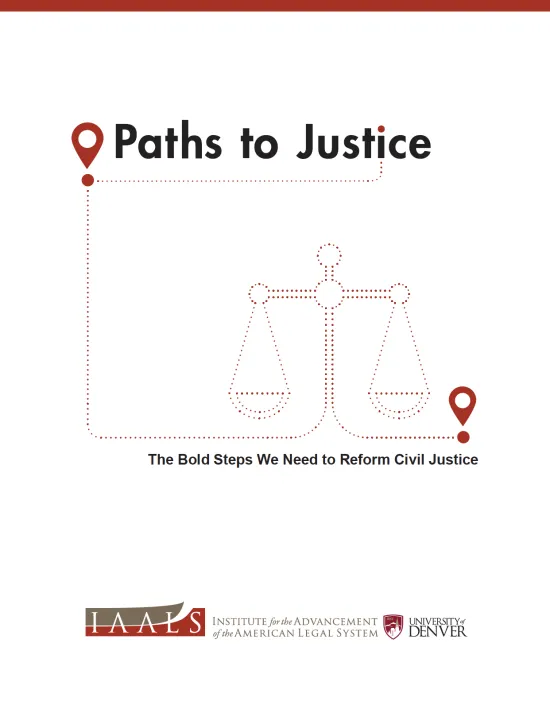Paths to Justice Summit Series
Throughout the past 18 months, the pandemic has been a shared experience across our state, our country, and our world, yet everyone has experienced it uniquely. The same is true of our courts, which have taken different paths to the same goal: continuing access to justice and continuity of services—be it virtually or in person. The challenges they faced brought innovation at a scale and pace that we've never seen before, amounting to a year-long national pilot project for both state and federal courts.
Moving forward, the pandemic will have lasting implications for our justice system. The immediate focus on keeping the doors of justice open will inevitably shift to growing case backlogs, reduced funding, increased demand for low-cost legal assistance, inequities in access, and deepening concerns regarding public trust and confidence. Our justice system must be ready, but how do we create paths forward to achieve justice for all?
To answer this question, IAALS launched a virtual summit series, Paths to Justice. The series was comprised of multiple invite-only virtual convenings as well as a series of webinars focusing on the paths of the pandemic, the paths to access, and the paths to racial justice that our system must walk in our new normal. We connected with other stakeholders tackling these issues, fostered conversations among stakeholders and across systems, and moved the conversation—and innovation—forward.
The past year has emphasized that our system falls short of the promise of equal justice, and there is much work to be done to realize justice for all. It is clear that now, more than ever, we need transformative change on a broad scale. We're thankful to all who joined us on the paths forward.
